2013 Toyota Corolla Repair, Service & Tires
Get Started
Complete Auto Care for Your 2013 Toyota Corolla
-
TIRES FOR YOUR 2013 Toyota Corolla View Tire Info GET TIRE PRICING
-
REPAIR FOR YOUR 2013 Toyota Corolla View Repair Info SCHEDULE REPAIR
-
MAINTENANCE FOR YOUR 2013 Toyota Corolla View Maintenance Info SCHEDULE MAINTENANCE
-
OFFERS FOR YOUR 2013 Toyota Corolla Limited Time Tire Offers VIEW ALL COUPONS
2013 Toyota Corolla Tires
Recommended Tires | Tire Information
2013 Toyota Corolla Tires Sizes, Speed Ratings, and Inflation
Not sure about your 2013 Toyota Corolla tire size? Use the following chart to find information on tire size, speed rating, and inflation.
| Trim Level | Speed Rating | Inflation in PSI F/R | Tire Size |
|---|---|---|---|
| 2013 Toyota Corolla LE | H | 32 PSI/32 PSI | P205/55R16 |
| 2013 Toyota Corolla S* | H | 32 PSI/32 PSI | P205/55R16 |
| 2013 Toyota Corolla S* | W | 32 PSI/32 PSI | P215/45R17 |
| 2013 Toyota Corolla L | S | 30 PSI/30 PSI | P195/65R15 |
|
2013 Toyota Corolla LE Speed Rating: H Inflation F/R: 32 PSI/32 PSI |
|
2013 Toyota Corolla S* Speed Rating: H Inflation F/R: 32 PSI/32 PSI |
|
2013 Toyota Corolla S* Speed Rating: W Inflation F/R: 32 PSI/32 PSI |
|
2013 Toyota Corolla L Speed Rating: S Inflation F/R: 30 PSI/30 PSI |
* Note: these models have different tire sizes depending on vehicle options.
Recommended Tires for Your 2013 Toyota Corolla
What tires are best for a 2013 Toyota Corolla? Check out the following tire brands and types.
 Blizzak WS90
Blizzak WS90
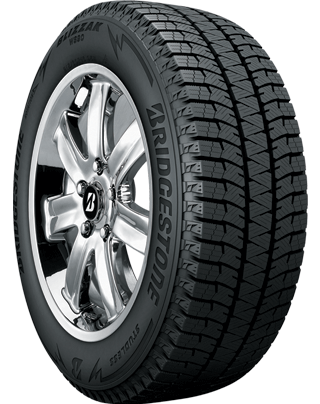
- No warranty
- Winter
- Winter
 DriveGuard Plus
DriveGuard Plus
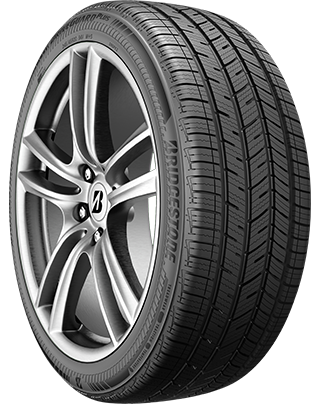
- Platinum Pact Limited Warranty
- All-Season
- Performance
 Ecopia EP422
Ecopia EP422
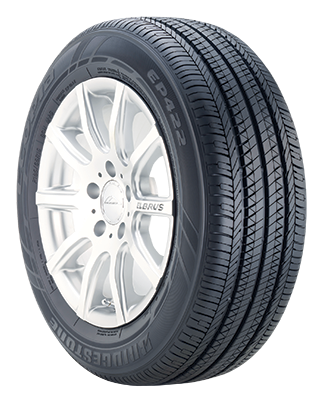
- Platinum Pact Limited Warranty
- All-Season
- Performance
 Ecopia EP422 Plus
Ecopia EP422 Plus
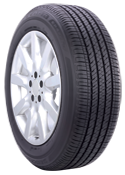
- Platinum Pact Limited Warranty
- All-Season
- Performance
 Potenza RE71RS
Potenza RE71RS
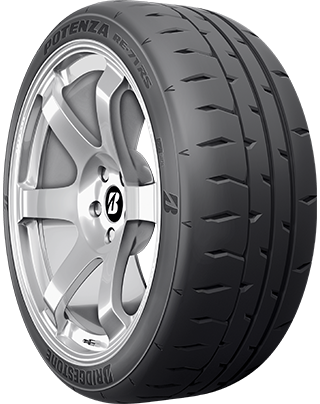
- No warranty
- Summer
- Performance
 Potenza Sport
Potenza Sport
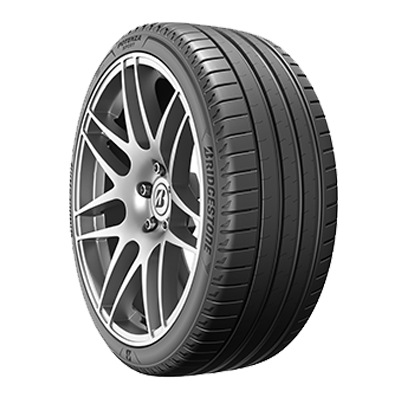
- Platinum Pact Limited Warranty
- Summer
- Performance
 Potenza Sport AS
Potenza Sport AS
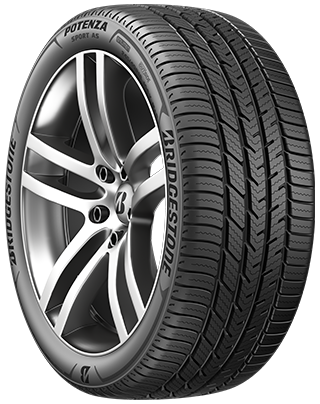
- Platinum Pact Limited Warranty
- All-Season
- Performance
 Turanza EL400-02
Turanza EL400-02
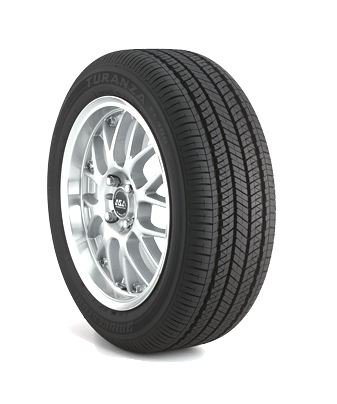
- No warranty
- All-Season
- Performance
 Turanza EL42 RFT
Turanza EL42 RFT
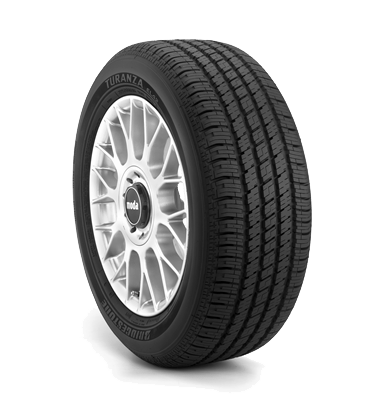
- Platinum Pact Limited Warranty
- All-Season
- Performance
 Turanza QUIETTRACK
Turanza QUIETTRACK
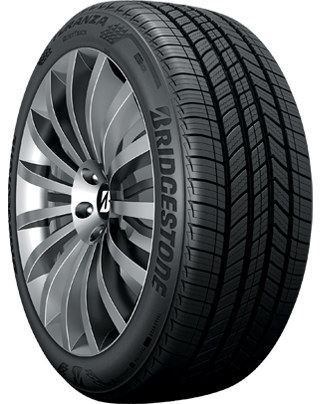
- No warranty
- All-Season
- Performance
 Turanza T005
Turanza T005
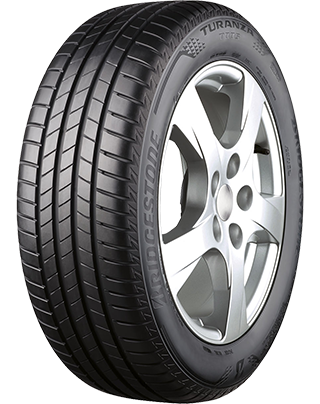
- No warranty
- Summer
- Performance
 WEATHERPEAK
WEATHERPEAK
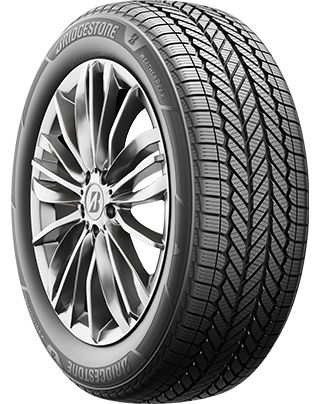
- Platinum Pact Limited Warranty
- All-Season
- Passenger Tires
 Firehawk Indy 500
Firehawk Indy 500
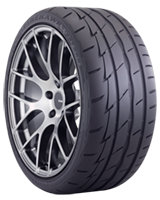
- Gold Pledge Limited Warranty
- Summer
- Performance
 ALL SEASON
ALL SEASON

- No warranty
- All-Season
- Passenger Tires
 FT140
FT140
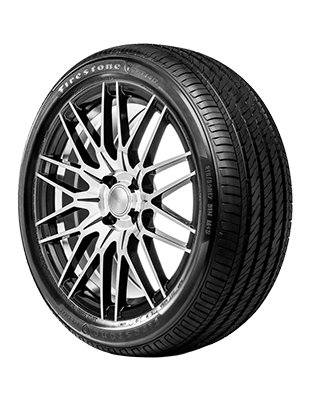
- No warranty
- All-Season
- Passenger Tires
 WEATHERGRIP
WEATHERGRIP
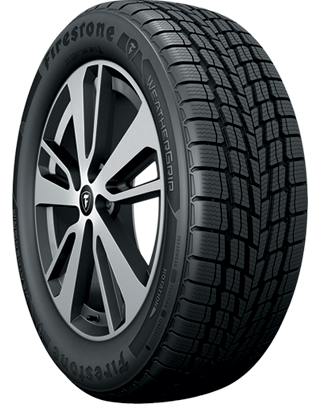
- No warranty
- All-Season
- Passenger Tires
 Winterforce 2
Winterforce 2
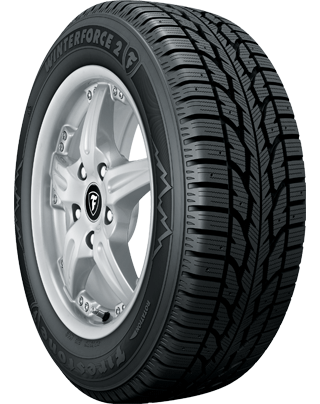
- No warranty
- Winter
- Winter
 Firehawk AS V2
Firehawk AS V2
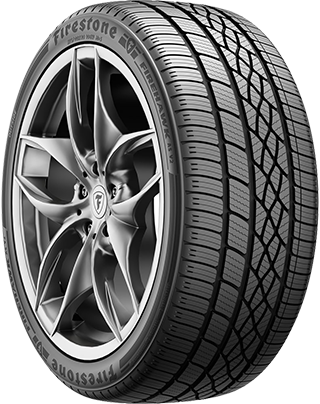
- No warranty
- All-Season
- Performance
 Affinity Touring S4 FF
Affinity Touring S4 FF
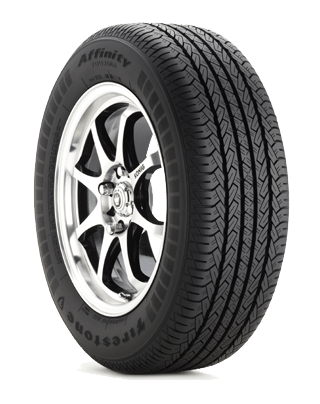
- Gold Pledge Limited Warranty
- All-Season
- Passenger Tires

- No warranty
- All-Season
- Passenger Tires

- No warranty
- All-Season
- Passenger Tires

- No warranty
- All-Season
- Performance
 PROXES Sport A/S
PROXES Sport A/S
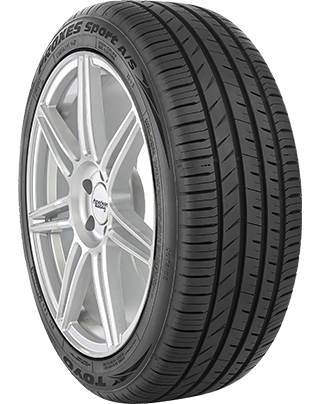
- No warranty
- All-Season
- Performance
 PROXES R1R
PROXES R1R
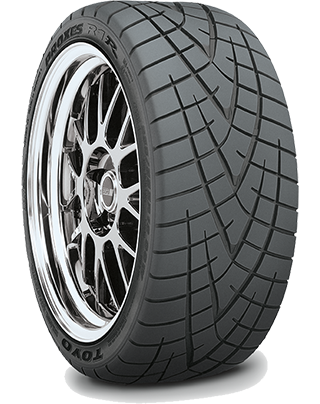
- No warranty
- Summer
- Performance
 PROXES Sport
PROXES Sport
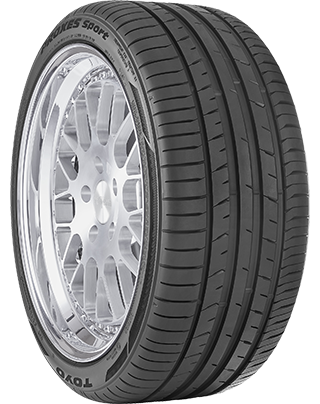
- No warranty
- Summer
- Performance
 Extensa A/S II
Extensa A/S II

- No warranty
- All-Season
- Passenger Tires
Choosing 2013 Toyota Corolla Tires
Other than getting the proper tire size, you also want to think about a couple of other things when getting new Toyota Corolla tires like how and where you drive, and how much you want to spend. When evaluating your driving conditions, think about where you live (countryside vs. city vs. mountains) and the kind of unexpected weather you're likely to experience. It's not uncommon for drivers in states that experience all four seasons to buy more than one set of tires. one for winter and one for summer. Other drivers buy one set of all-season tires instead. That way they don't have to return to the tire shop and their vehicle is always ready for sun, rain, and light snow!
Your personal driving style is the next factor to consider. If you're a diehard off-roader, you have very different tire needs than a highway commuter who doesn't leave the paved path. Browse Toyota Corolla tires online or come to your nearby Firestone Complete Auto Care for help selecting the tire that's right for you.
Toyota Corolla Installation and More
We sell tires, but we also service them and care for all the around-the-wheel components. We're your one-stop shop for tire installation, rotation, and ongoing maintenance! We make it easy to buy new 2013 Toyota Corolla tires online and book an installation appointment at the same time.
2013 Toyota Corolla Tire Q&A
-
Why does Toyota tire inflation matter? Even a tiny decrease in tire pressure could impact your safety and fuel economy. Maintaining proper tire pressure can help increase fuel economy, improve braking time, and boost tire lifespan.
-
What do the tire sidewall numbers mean for my Toyota Corolla? Your tire sidewall gives you information about load carrying capacity, speed rating, treadwear, traction, and tire size. Talk to one of our tire technicians to learn how to read the numbers on your tire!
-
How do I check the tread depth on my Toyota tires? Stay on top of your tire tread depth to help avoid a dangerous drive. You can check tread depth with a penny. Hold the penny so that Abraham Lincoln is facing you, then place your penny into a tread groove upside down. If you can see the top of Abe’s head, your tread is shallow and it might be time for new Toyota Corolla tires. Grab a penny. Hold the so that Abe Lincon's head is facing you and his hair is pointing toward the ground. Then, place the penny into a tread groove. If you can see the top of Abe’s head, your tread is shallow and it might be time for new Toyota Corolla tires.
Repair Services for Your 2013 Toyota Corolla
When to repair, when to replace? Click on a repair below to learn more about Toyota Corolla repairs at Firestone Complete Auto Care.
2013 Toyota Corolla Repair Information
For most drivers, the words “car repair” don’t exactly spark excitement. But we work to provide you with a different experience at Firestone Complete Auto Care. When you come to us for 2013 Toyota Corolla repair services, our technicians will take care of your Corolla like it was their own. We’ll start by assessing what repairs may be needed, and we’ll provide you with a detailed explanation of what we recommend. We value your trust, so we recommend only the repairs we think are necessary for your safety on the road.
How Much Does Toyota Corolla Repair Cost?
Several factors can affect the cost to repair your 2013 Toyota Corolla, including which repairs are needed, costs of replacement parts or repair supplies, the amount of labor necessary to get the job done, and the state you live in. But no matter your location, you may be able to save money with one of our many auto repair coupons or offers.
A few different aspects can influence repair costs for your 2013 Toyota Corolla, like
2013 Toyota Corolla Auto Repair Questions
-
Do I need to follow Toyota's maintenance schedule? The cheapest 2013 Toyota Corolla repair is the one that isn’t necessary in the first place! Staying up-to-date with your car’s scheduled maintenance services is a great way to keep future repair costs low.
-
Should I bring my Toyota in even if I can't pinpoint the problem? You know your vehicle. You also know when something feels 'off' with your vehicle. Pay attention when things don't run like they used to and stop by for a Courtesy Check when you notice an unusual sign, smell, or sensation. We might be able to help you prevent Toyota Corolla repairs!
-
Are the repairs you recommend for my Toyota actually needed? Trust is more than just a saying on the wall. It’s a window underneath it. That’s why we won’t recommend services or repairs for your 2013 Toyota Corolla unless we think they’re vital to your safety on the road.
Brake Repair for Your 2013 Toyota Corolla
Your Toyota Corolla engine may be strong and reliable. But if you can’t brake, it might as well be scrap metal. If you notice your brakes are squeaking or not working well, don’t wait! Unresponsive brakes make it tough to give the road your best. Plus, ignoring your brake problems can result in more damage and higher brake repair bills. Go to your local Firestone Complete Auto Care for 2013 Toyota Corolla brake repairs. We offer a variety of brake services like brake pad/shoe removal and replacement, rotor/drum resurfacing, brake fluid exchange, and brake caliper and wheel cylinder service.
Toyota Corolla Brakes Frequently Asked Questions
-
Why is my Corolla shaking as I brake? Your Corolla could shake when you brake due to worn brake pads or rotors, warped rotors, loose or worn suspension components, or faulty brake calipers. You can always schedule a free brake inspection at the first sign of strange brake behavior.
-
How often do I need to replace my Corolla brake pads? Brake pads generally last between 30,000 and 40,000 miles. Your driving can affect how long your Corolla brake pads last, though. For example, mainly driving on highways and gradually braking can help increase the lifespan of your brake pads, and carrying hefty loads or riding your brakes can shorten it.
-
Does brake fluid leak when the car is off? Because your Corolla brake system is a closed hydraulic system, it should not leak brake fluid. However, if components in your brake system have worn out or been damaged, it might cause brake fluid to leak.
2013 Toyota Corolla Drivetrain Repairs
Drivetrains for front, rear, and all-wheel-drive and 4WD vehicles are quite different, so you don't want to go to just anyone for drivetrain repair. You want to go to Firestone Complete Auto Care. We can take care of most 2013 Toyota Corolla drivetrain components Your Toyota could be crying out for driveshaft repair if you notice vibration as your vehicle accelerates, clunks when shifting, heavy vibrations in your floorboards, or resistance when turning.
2013 Toyota Corolla Drivetrain Q&A
-
How do I know if my Toyota drivetrain is damaged? Hear noises toward the back of your Toyota Corolla? See fluid leaking? Having issues turning? These could all be signs of drivetrain damage you don't want to ignore. Take action quickly to catch repairs or replacements before something more severe happens.
-
Why is my Corolla malfunction indicator light (MIL) on? The malfunction indicator light — also known as the check engine light — on your Corolla can illuminate for a variety of reasons, including engine issues, electrical problems, damaged sensors, transmission problems, misfires, and faulty connections.
-
How concerning is a drivetrain malfunction in my Corolla? A drivetrain malfunction in your Corolla should never be taken lightly. Driving with a malfunctioning drivetrain can put you in danger and lead to further vehicle damage, so it's essential to have a qualified mechanic assess and repair the problem as soon as possible.
Wheel Alignment for 2013 Toyota Corolla
An alignment involves making adjustments to your Toyota Corolla's suspension system, which connects the wheels with the rest of the vehicle. In an alignment service, your tire angles are adjusted according to measurements recommended by Toyota. Why? So that your tires can make contact with the road at the best possible angle. Bring your 2013 Toyota Corolla in for a wheel alignment and we'll start with an alignment check. After that, we can adjust your wheel alignment angles until they match Toyota’s recommended measurements.
Toyota Corolla Alignment Questions
-
What can knock my Toyota Corolla out of alignment? Hitting a pothole or curb can alter your wheel alignment. So can general wear and tear over time.
-
When should you get a wheel alignment for your Corolla? Generally, it’s wise to have your alignment looked at around every 6,000 miles or 6 months, whichever happens first. You should check your Corolla owner’s manual to verify Toyota’s suggested interval.
-
Do you need to get your Corolla wheels aligned? While you don’t necessarily need to get an alignment when putting new tires on your Corolla, it’s still a good idea. Ensuring your wheels are properly aligned can help support optimal handling, tire wear, and fuel efficiency.
2013 Toyota Corolla Engine Repair
If your 2013 Corolla engine needs repairs, our technicians will make sure you understand what’s going on before they start working on your engine. We never do any work without your sign-off. If a repair isn’t urgent right now, we’ll let you know. We'll also tell you if it's necessary for your safety. We seek to give you all the info you need to make a smart decision about our services. By choosing Firestone Complete Auto Care for Corolla engine repairs and you can feel confident knowing that we use Toyota-approved parts and components like the cambelt, engine oil seal, fuses, or other parts.
Questions About 2013 Toyota Corolla Engines
-
Why does the check engine light in my Corolla turn on when I start my car? It's okay if your check engine light comes on when you first start your vehicle. This is a sign that your vehicle is testing its circuits. The light should go off shortly. Bring your vehicle in if it doesn't.
-
Are Toyota Corolla engine noises bad? Strange engine sounds can be a sign something’s off in your Toyota Corolla. Knocking or tapping could be a symptom of low oil. A high-pitched whistle could signal an intake leak or misaligned belt. Squealing can be traced back to a loose fan belt, and grinding might be a sign of brake problems rather than engine issues.
-
What could damage my Toyota Corolla engine? Certain driving habits can hurt your engine. These habits include driving on an empty fuel tank, revving your engine while the vehicle is in Park, or slamming the gas pedal while the engine is still cold. Steer clear of these habits to help protect engine performance and efficiency.
Get Your Toyota Corolla Tire Repaired
If the road has been rough on your 2013 Toyota Corolla tires, Firestone Complete Auto Care can help. In some cases, a tire doesn’t have to be replaced – it can be plugged and patched with a simple repair. Depending on the damage, though, a repair might not be the right move. Our technicians can determine which option is best for your situation. To start, we’ll consider the location of tire damage, the type of issue, the size and scope of the damage, and the amount of wear on your tires.
If your 2013 Toyota Corolla tire puncture can be repaired, we'll follow three basic steps to repair it: (1) Take the tire off the wheel for easy inspection, (2) use a filler to close up the puncture (this is to keep moisture from getting in), and (3) seal the inner liner with a repair unit to prevent air loss.
Frequently Asked Toyota Corolla Tire Repair Questions
-
What happens if I drive my Toyota on a flat tire? Driving on a flat tire is not a good idea. Your Corolla engine will keep running with a flat tire, but you could damage your wheel by continuing to drive on a flat.
-
Will a temporary sealant fix my Toyota's flat tire? Temporary sealants will solve your problem… for a little bit. If you’ve seen temporary or emergency tire sealant before (it usually comes in a can), it can be tempting to turn to this as a solution for your flat tire. Keep in mind that these fixes could buy you some time to get to Firestone Complete Auto Care for a proper repair, but they could also cause some harm in the process (for example, damage to your TPMS). Plus, using a product like this could void your tire warranty.
-
What can cause Corolla tires to keep losing air? Tire punctures, damaged wheels, and leaking valve stems are possible reasons for your Corolla tires continuously losing air.
Maintenance for Your 2013 Toyota Corolla
Take care of your Toyota Corolla and it'll take care of you. With the right maintenance at the right time, your Corolla has a good chance of hitting 200,000 miles or more.
2013 Toyota Corolla Maintenance Schedule
What is the manufacturer recommended maintenance schedule for a 2013 Toyota Corolla? Find maintenance info for your vehicle.
2013 Toyota Corolla Maintenance Information
There's no need to guess when it's time to get Corolla maintenance, and no need to wait until something goes wrong. Just follow your 2013 Toyota Corolla maintenance schedule! This recommended maintenance schedule is written by the auto manufacturer, Toyota themselves. Driving conditions, climate variations, and other variables can affect which scheduled maintenance services you’ll need; however, recommended maintenance usually includes services like oil changes, tire rotations, brake pad replacement, filter changes, and fluid checks and exchanges. Keeping up with routine service appointments is a great way to keep your Corolla running for longer, keep you safer on the road, and maybe even save you the headache of dealing with common 2013 Toyota Corolla problems in the future.
Essential Maintenance to Keep Your 2013 Toyota Corolla Running Newer, Longer
Bring your 2013 Toyota Corolla to Firestone Complete Auto Care for factory-recommended maintenance services and a skilled technician will start the appointment with a Courtesy Check. This Courtesy Check can establish a baseline of what may need to be addressed during your service appointment. Every Courtesy Check will include a visual inspection of your Corolla. We’ll check your head and tail lights, fluid levels, filters, tires (and their alignment!), and windshield wiper blades. We’ll also perform a free battery check to determine your battery’s charge level.
Firestone Complete Auto Care is the place to go for 2013 Toyota Corolla maintenance. Don’t wait until something goes wrong with your car. Visit your nearest location for proactive maintenance today.
2013 Toyota Corolla Maintenance Questions
-
What should I do after hitting a pothole in my Toyota Corolla? Watch out for pothole damage. If your 2013 Corolla is pulling to one side or the other, your tires or suspension system could be calling out for help.
-
When does my Toyota Corolla need high mileage oil? If your Toyota Corolla has ticked past 75,000 miles, consider switching to high mileage oil at your next oil change to give your engine what it needs to go another 75,000 (or more!). High mileage oil: make it a high priority!
-
Can Toyota dashboard warning lights wait? It's better to get them addressed as soon as possible. An illuminated dashboard light means something in your vehicle isn't functioning like it should. Letting problems linger can mean bad news for your Toyota Corolla, so be sure to take your car in for service as soon as you notice an illuminated dashboard light.
The Right Battery Size for a 2013 Toyota Corolla
Researching battery replacements for your Toyota Corolla?
| Battery | Engine | Warranty | Cold Cranking Amps | |
|---|---|---|---|---|
| 35-1 | L4/1.8L | Replacement 24 months | Performance months | 500 |
| 35-2 | L4/1.8L | Replacement 36 months | Performance months | 640 |
| 35-AGM | L4/1.8L | Replacement 36 months | Performance months | 650 |
| 35-1 | L4/2.4L | Replacement 24 months | Performance months | 500 |
| 35-2 | L4/2.4L | Replacement 36 months | Performance months | 640 |
| 35-AGM | L4/2.4L | Replacement 36 months | Performance months | 650 |
2013 Toyota Corolla Car Batteries
The average car battery lasts three to five years. You want to replace your 2013 Toyota Corolla battery before it fails and leaves you stranded. Look out for symptoms of a faulty car battery. A slow engine crank, an illuminated check engine light or battery signal, swollen battery case, corrosion-covered posts, or faded headlights can all signal that your battery is waving goodbye.
Or, you can get a complimentary battery check at your nearest Firestone Complete Auto Care. Stop by for a free battery test and, if needed, a replacement battery for your 2013 Toyota Corolla. Car batteries are one of our many specialties! Our expert technicians understand Toyota service recommendations for Corolla car batteries’ reserve capacities and cold cranking amps. Get help figuring out the battery size that's best for your Corolla, and schedule an appointment today for a quick car battery replacement.
Top Toyota CorollaCar Battery Questions
-
Why doesn’t my Toyota Corolla battery stay charged? A car battery that needs to be jump-started every time is as good as dead. It may be getting old. Or, you’ve been leaving the doors slightly open and the dome lights on during the night. Stop in for a free battery check at your nearest Firestone Complete Auto Care and learn more about your battery's charge.
-
What is the average lifespan of a car battery? The typical 12-volt car battery may last three to five years, depending on the type of battery, the driving conditions, and how well the battery is maintained.
-
Why is there white, flaky stuff around my Corolla’s battery post? The white, flaky stuff that can build up around your Corolla’s battery terminals is known as corrosion. Acid leaking from your vehicle’s battery post can have a chemical reaction with the air, leading to an accumulation of the white, powdery substance over time. Corrosion can affect the flow of electricity between your battery and the electrical system in your Corolla, possibly causing issues with electrical performance and starting. If left unaddressed for long enough, it may even cause your battery to prematurely fail.
2013 Toyota Corolla Oil Changes
Toyota recommends changing your 2013 Corolla’s oil at regular intervals. Your Corolla may need an oil change right away if your check engine/oil change light is on, you hear knocking sounds coming from the engine, sense an oil smell in the cabin, or see an excess amount of vehicle exhaust. You might need an oil change more frequently than what’s recommended by Toyota if you regularly haul heavy loads, drive in dusty areas, go off-roading a lot, or drive at low speeds for long distances.
Whether you need high mileage oil, synthetic oil, or conventional oil, you'll find the right 2013 Toyota Corolla motor oil at Firestone Complete Auto Care. Check your owner's manual and talk with a technician to select the right Toyota Corolla oil, whether it's Quaker State® Advanced Durability™ conventional oil, Pennzoil® High Mileage Vehicle® motor oil, Pennzoil Platinum® Full Synthetic motor oil with PurePlus™ Technology, or Shell Rotella® heavy-duty engine oil. During an oil change, an auto technician will change your Corolla’s oil, replace and recycle your used oil and oil filter, inspect the rest of your car’s filters, refill vital car fluids, and perform a free inspection on the rest of your vehicle. Get professional engine care by making an oil change appointment for your Corolla today.
2013 Toyota Corolla Oil Change Q&A
-
What does it mean if my Toyota Corolla oil light comes on? The oil change light in your Toyota Corolla could be triggered by an overdue oil change. However, if the oil pressure light is on, you may be dealing with low engine oil, a failing oil pump, a clogged oil filter, or a malfunctioning oil pressure sensor.
-
How hard is it to change Toyota Corolla oil at home? First off, changing your own oil isn’t as easy as you’d think. You’ll have to buy special tools and figure out a way to recycle the old oil properly. Getting a professional oil change reduces the risk of something going wrong during the service, but also helps your car perform down the road.
-
Why is my Toyota exhaust smoke gray or blue? You could have an oil leak and have a case of burning oil. Looks like it’s time for a professional to take a look. The leak could be the result of worn valve seals, fried piston rings, or old cylinder walls.
2013 Toyota Corolla Engine Tune-Ups & Maintenance
Routine engine tune-ups can bring power back to your Corolla. Your nearest Firestone Complete Auto Care location has several options to choose from when it comes to Toyota Corolla engine tune-up services. The standard Firestone Tune-Up is one service option. It includes a complete visual inspection of engine components, installation of new spark plugs, and a lifetime warranty on parts*. The second service focuses on your Corolla's filters, specifically replacing the air filter and fuel filter. Yet another service is a fuel system cleaning process, which involves removing varnish, dirt, and carbon deposits that have built up inside the fuel injectors, throttle body, and throttle plate in your Corolla. This can improve your fuel system’s performance (and therefore, your engine’s performance). Keep in mind that your Corolla's mileage and maintenance history can uniquely impact its tune-up needs. Ask one of our technicians what your vehicle needs, based on your driving habits and your car’s current condition.
*Check with a teammate at Firestone Complete Auto Care for complete terms and conditions regarding warranties.
2013 Toyota Corolla Engine Tune-Up Q&A
-
When should Toyota Corolla spark plugs be replaced? Replace spark plugs on time or about every 30,000 miles or so. Spark plugs are small but mighty. The spark of electricity that the plug emits across a small gap creates the ignition for the combustion needed to start your car. Without that spark, your car won't start.
-
What does a puddle underneath my Toyota Corolla mean? Puddles could indicate an oil leak, coolant leak, or brake fluid leak– all of which can critically hurt your engine. Have your engine inspected as soon as you spot a pool of liquid in your usual parking spot.
-
How frequently do the fuel injectors in my Toyota Corolla need to be cleaned? Factors like fuel type and driving conditions can affect how frequently you need to clean your Corolla fuel injectors. Some manufacturers recommend a fuel system cleaning as part of routine maintenance, or as needed if your vehicle is showing signs of poor fuel system performance.
2013 Corolla Toyota Steering & Suspension Services
When you first bought your 2013 Toyota Corolla, the ride was probably so smooth that you didn’t even think about it! But these days, things are starting to feel a bit rough. Perhaps your Corolla feels bouncy, leans to one side, or makes a weird sound when you drive over a speed bump or turn. As soon as you notice that something’s “off” with your 2013 Toyota Corolla, bring it in for steering and suspension repairs. We'll get to the root of the problem and, if your car needs steering and suspension repairs, we'll explain all of your options and the potential cost.
2013 Corolla Steering & Suspension Q&A
-
Why is my Toyota Corolla bouncing excessively? Excessive bouncing in your Toyota Corolla might be due to damaged struts or shocks that are unable to absorb road bumps effectively, causing your vehicle to feel more like a pogo stick than a smooth ride.
-
Why does my Corolla tilt forward when I hit the brakes? When you brake, the forward momentum combined with your vehicle's weight sends a lot of force to the vehicle's front end. A bad suspension can cause all that weight and force to push the front end downward.
-
Does treadwear and tire pressure impact my Corolla's steering and suspension? Maintaining your tires can help reduce strain on the suspension, nd also let you know when it's time to replace your tires. A faltering steering and suspension system could lead to uneven tire wear.
Convenient & Local 2013 Toyota Corolla A/C Service
Our trained technicians will do what they can to solve your 2013 Toyota Corolla A/C problems. During this initial A/C performance check, we’ll look at the state of your 2013 Toyota Corolla’s A/C system to see if repair work is required. This check will include an examination of system pressure, a visual inspection, and a leak test.
When we perform an A/C repair on your 2013 Toyota Corolla, we’ll also do an A/C evacuation and recharge. To do this, one of our technicians will remove the refrigerant in your A/C system (if there is even any left to remove). Then, they’ll perform an evacuation (also known as a discharge) on the entire system per Toyota guidelines. To finish, we’ll add new refrigerant to recharge the A/C system.
Frequently Asked Questions for 2013 Toyota Corolla A/C Systems
-
Why is my Corolla A/C blowing hot air? If your car’s air conditioning isn’t blowing cold air at all (or it tries, then turns warm), you could have a clogged expansion valve, a faulty compressor clutch, a leak, or a malfunctioning fuse in the system.
-
How does my A/C system get a leak? Over the years, the rubber seals and gaskets in your Corolla’s A/C system naturally degrade. Moisture can get into the system and cause a malfunction, or parts can simply wear out so that your system no longer seals properly.
-
Why won’t my Corolla’s A/C cool the vehicle when the car is stopped? If your A/C only works when the vehicle is moving, there could be a problem with part of your Corolla’s A/C or electrical system. Potential issues include low coolant or a faulty cooling fan.
2013 Toyota Corolla Transmission Service & Repairs
Your transmission carries power from the engine to the wheels so that you can drive at the speed you desire. Since the transmission has to translate the precise amount of power for your desired amount of speed, a small transmission issue can put a big dent in your Corolla’s performance. 2013 Toyota Corolla transmission problems can show up as shifting delays, grinding or jumping during acceleration, a feeling of shakiness, or whistling noises or a burning smell coming from beneath the hood. Let Toyota Corolla transmission problems linger and your could suffer a loss in fuel efficiency or discover that your Corolla’s not even driveable. Our technicians are trained to service 2013 Toyota Corolla transmission systems according to vehicle manufacturer recommendations. If you think there’s something wrong with your Corolla’s transmission, schedule an appointment at your local Firestone Complete Auto Care to help keep your Toyota running for miles and miles.
2013 Toyota Corolla Transmission Questions & Answers
-
When should I have my Corolla's transmission fluid checked or exchanged? Caring for your Toyota Corolla’s transmission fluid is a great way to help it perform. About every 30,000 to 60,000 miles is a good timeframe for having your transmission fluid inspected and perhaps changed. Service intervals can vary depending on how you use your Toyota, so check with your technician first. Luckily, leaks and low fluid levels are easy to spot and inexpensive to fix.
-
Can my Toyota Corolla leak transmission fluid? Yes. Toyota Corolla transmission fluid can leak over time and potentially cause transmission issues. Worn or damaged seals, a loose or damaged transmission pan, a cracked transmission housing, faulty transmission cooler lines, or an overfilled transmission could cause transmission fluid leaks.
-
Is it okay to drive a Corolla with a transmission fluid leak? Driving your Corolla with a transmission fluid leak is highly discouraged. Transmission fluid is vital to the smooth operation of your transmission system, and a leak can put the entire system at risk. A transmission fluid leak may lead to decreased performance, overheating, and possibly even transmission failure.
Get a 2013 Toyota Corolla Vehicle Inspection
Every service performed at Firestone Complete Auto Care includes a multi-point Courtesy Check. To start, one of our technicians will check the battery in your Toyota Corolla to determine how much charge remains. The check will continue with a visual inspection of your Toyota Corolla's windshield wiper blades, lights, filters, hoses, alignment, tires, fluid levels, and belts.
Every service performed at your nearest Firestone Complete Auto Care will include a Courtesy Check, but you can also request a Complete Vehicle Inspection for your 2013 Toyota Corolla if you suspect there may be a bigger problem. During a Complete Vehicle Inspection, we’ll visually check everything that’s on the list for a Courtesy Check. Additionally, we’ll perform an examination (by hand!) of your steering, suspension, brakes, and exhaust system. This inspection is aimed at informing you of any major problems that could wreak havoc on your 2013 Toyota Corolla if left unaddressed.
Depending on your location, you may be able to take care of your state inspection or safety test at your local Firestone Complete Auto Care. Inspections are performed on a state-by-state basis and requirements vary.
Common 2013 Toyota Corolla Vehicle Inspection Questions
-
How do I know if my Toyota Corolla needs a check-up? It needs a check-up if something feels 'off' to you, the driver. Your Toyota Corolla could benefit from a Courtesy Check if it has any illuminated dashboard lights, you hear weird noises coming from any part, the engine doesn't start sometimes, or your vehicle pulls to one side.
-
Help! My 2013 Toyota Corolla failed the state inspection test. Can you get it to pass? There's a good chance we can. Stop by for a full system inspection and we'll get to the root of the issue.
-
What's the ideal timing for a full vehicle inspection on my Toyota Corolla? You should bring your Toyota Corolla in for a full vehicle inspection if something weird happens and you can’t find the problem. A new dashboard light might come on, you may hear strange sounds under the hood, or your steering might feel off. A complete inspection is also a great idea before a road trip for added peace of mind.
2013 Toyota Corolla Radiator Repair & Service
Regular, proactive service on the radiator in your 2013 Toyota Corolla is crucial to keep your engine in the best possible shape for years to come. In fact, Toyota recommends replacing coolant/antifreeze at specific intervals, but it’s a good idea to keep your eyes open for any indication that your radiator is failing. You could be on the verge of a radiator-induced engine breakdown if you see coolant leaks under your car, high engine temperatures, or a dashboard light that indicates low coolant.
When you come to Firestone Complete Auto Care, we’ll begin your radiator repair with an in-depth inspection of the cooling system in your Toyota Corolla. We then do a machine-powered radiator exchange, replenish flushed chemicals, sealants, and lubricants, and then pressure check for leaks. From the heater core to the radiator cap, your 2013 Toyota Corolla is in good hands at Firestone Complete Auto Care.
Questions About Toyota Corolla Radiators
-
What does the coolant light on my Toyota dashboard mean? Your engine might be about to overheat. If your low coolant light is on, pull over in a safe area and wait for your engine temperature to go down. Once it’s safe to do so, bring your car to your nearest Firestone Complete Auto Care to have the coolant system inspected.
-
What can cause my Corolla to overheat? Your Toyota Corolla engine could overheat due to low coolant, a clogged radiator, a damaged water pump, a malfunctioning cooling fan, or a faulty thermostat.
-
What can cause a Corolla radiator to make boiling or rumbling sounds? There could be air pockets in your Corolla’s cooling system. You might also have a clogged radiator or faulty radiator cap (this last one is an easy fix!).